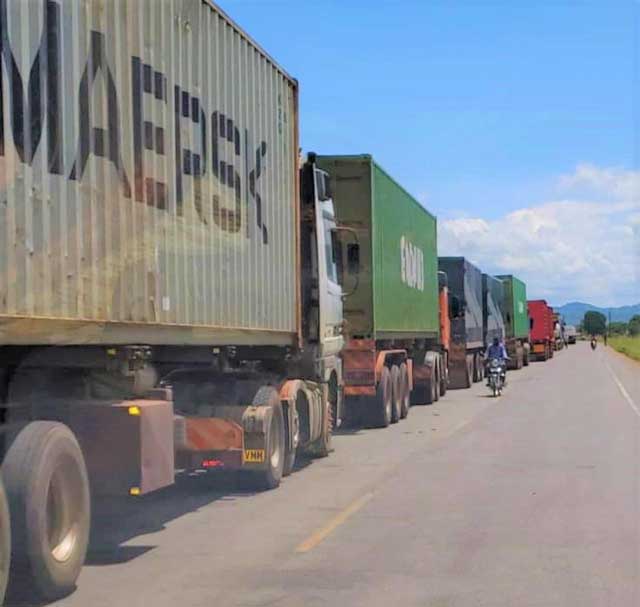
Kampala, Uganda | THE INDEPENDENT | Key populations operating at borders points to Uganda say that they can’t adhere to the Ministry of Health’s Standard Operating Procedures (SOPs) of maintaining a physical distance as protection against COVID-19.
According to the World Health Organization, in the wake of COVID-19 everyone is encouraged to maintain at least a one-metre distance between themselves and others to reduce the risk of infection when they cough, sneeze or speak. They recommend that one maintains an even greater distance between themselves and others when indoors.
However a study by Makerere University-based researchers in the School of Public Health note that the key populations at the border points who include sex workers, business community and health workers told them that it is impossible to enforcing social distancing.
Dr Joseph Matovu, the Principal Investigator on the study says that the key populations asked that they implement options that are viable for their kind of business.
Despite over 80% of the 855 respondents that were surveyed admitted that they are aware of key prevention measures such as hand washing, mask-wearing and maintaining a social distance, they found adherence to be very low.
The study was conducted between September and December 2020 among key populations including health workers, business personnel, truck drivers, customs and sex workers operating around Mutukula and Malaba border points. The two points of entry were among the country’s COVID-19 hotspots in the early days of the pandemic.
The researchers say the majority of their respondents at 67% who were either interviewed through face to face interactions, focus group discussions and key informant interviews thought they are at risk of infection. Although 33% of all the respondents wrongly thought that once you get infected and recover you can never contract the disease again.
Matovu says, after collecting their findings the researchers went back to the community to brainstorm on workable options for the SOPs. They met different communities to specifically ask how well hand washing, social distancing and masking can be done.
According to Matovu, the sex workers suggested coming together in their association to start making liquid soap for hand washing but said what is impossible is social distancing.
They said that they would encourage wearing of masks while not in business.
Prof. Esther Buregeya a researcher based at Makerere University says that the findings were analyzed to find innovative ways to locally adapt and adhere to recommendations at the time when complacency about COVID-19 has set in.
She says the study team will go back after six months to establish whether their own formulated measures are being adhered to.
According to the researchers, the traders reported a conflict of interest in practicing social distance with competing priorities of getting customers.
********
URN
 The Independent Uganda: You get the Truth we Pay the Price
The Independent Uganda: You get the Truth we Pay the Price



